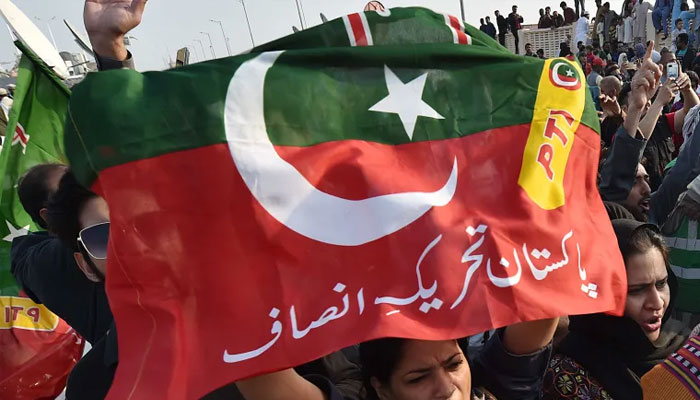Reserved seats fiasco
The PTI will not get much respite from its legal woes, especially in its efforts to get what it says is its share of the reserved seats quota in the national and provincial assemblies. The latest setback comes from the Peshawar High Court. Announcing its reserved verdict on the plea filed by PTI-backed Sunni Ittehad Council (SIC) regarding the reserved seats, the PHC on Thursday “unanimously rejected” the petitions filed by the party. The SIC’s plea had challenged the Election Commission of Pakistan’s (ECP) March 4 ruling, which said that the SIC is not eligible for the reserved seats allotted to women and minorities. The remaining 77 reserved seats were then allotted to other political parties. While it does seem odd and not within the realm of just that the PTI be deprived of these seats, the legal technicalities seem to be quite clear on this matter, with legal experts saying that legally, the PHC had no choice but to endorse the ECP’s verdict because the SIC did not submit any list for reserved seats.
The PTI will now most likely be headed to the Supreme Court to challenge the PHC verdict. The reserved seats crisis has garnered a variety of legal opinion, many pointing to the precedent of the Balochistan Awami Party (BAP) getting a reserved seat for women in the Khyber Pakhtunkhwa Assembly after the first post-merger elections in former Fata. BAP had not contested those elections but got a reserved seat after independents joined it. Legal experts say that the ECP and PHC could have used this precedent as even the PTI’s case is unique in the sense that its election symbol was taken away right before the elections and thus it had no way of knowing it would have to merge with the SIC, which never submitted a list for reserved seats.
The PTI may also be looking within itself for the fiasco. PTI leader Sher Afzal Marwat has said that instead of going ahead with the alliance with the JUI-Sherani group, the party changed its decision and announced its alliance with PTI-Nazriati, which was a huge mistake. Another mistake, he has said, was the party’s alliance with the Majlis Wahdat-e-Muslimeen (MWM) not materializing due to sectarian threats and thus the wrong decision of going ahead with the SIC. This is something many experts also pointed out: why did the PTI go with a party that had not even submitted a reserved seats list in the first place? From the get-go, the reserved seats issue has been a tale of hurdle after hurdle. But will the PTI also finally indulge in some much-needed introspection on how it got here? The intra-party election crisis, then the refusal to form an alliance with any of the mainstream parties, and now the back and forth of contrasting points of view from within the same party: the PTI seems to be having an internal crisis as much as its external issues. Whether PTI supporters like it or not, Marwat does end up dropping some truth bombs on the internal party issues as well. Perhaps it’s time to heed the warning signs and understand that holding out a hand in negotiation does not mean compromising on principles. Politics demands a lot more than making a government or contesting an election: it means also working with parties and people one is in complete disagreement with.
-
 Meghan Markle, Prince Harry Likely To Attend Super Bowl Halftime Show 2026
Meghan Markle, Prince Harry Likely To Attend Super Bowl Halftime Show 2026 -
 AI Next Big Trial: Elon Musk Calls For ‘Galileo Test’ To Prove True Intelligence
AI Next Big Trial: Elon Musk Calls For ‘Galileo Test’ To Prove True Intelligence -
 US Appeals Court Affirms Trump’s Immigration Detention Policy
US Appeals Court Affirms Trump’s Immigration Detention Policy -
 Bella Hadid, Adan Banuelos Rekindle Romance After Brief Separation
Bella Hadid, Adan Banuelos Rekindle Romance After Brief Separation -
 Jay-Z Shares Bold Advice With Bad Bunny For NFL Super Bowl Halftime Show Appearance
Jay-Z Shares Bold Advice With Bad Bunny For NFL Super Bowl Halftime Show Appearance -
 Epstein Probe: Bill, Hillary Clinton Call For Public Testimony Hearing
Epstein Probe: Bill, Hillary Clinton Call For Public Testimony Hearing -
 Brooklyn Beckham Considers Adoption As Nicola Peltz Can't Carry A Baby
Brooklyn Beckham Considers Adoption As Nicola Peltz Can't Carry A Baby -
 Expert Discusses 'complications' Of Measles Outbreak
Expert Discusses 'complications' Of Measles Outbreak -
 Kaley Cuoco Recalls Her Divorce With Karl Cook: 'I Was Gonna Die'
Kaley Cuoco Recalls Her Divorce With Karl Cook: 'I Was Gonna Die' -
 Celine Dion Reveals Music She's Listening To Lately
Celine Dion Reveals Music She's Listening To Lately -
 HR Exec Kristin Cabot To Speak At Crisis PR Conference After Coldplay Incident
HR Exec Kristin Cabot To Speak At Crisis PR Conference After Coldplay Incident -
 Why Travis Kelce Says Taylor Swift Has Made Him 'so Much Better'?
Why Travis Kelce Says Taylor Swift Has Made Him 'so Much Better'? -
 Halle Berry Credits This Hairstyle With Launching Her Acting Career
Halle Berry Credits This Hairstyle With Launching Her Acting Career -
 Hailee Steinfeld Spills Her 'no-phone' Rule With Husband Josh Allen
Hailee Steinfeld Spills Her 'no-phone' Rule With Husband Josh Allen -
 Bowen Yang Gets Honest About Post SNL Life: 'It’s An Adjustment'
Bowen Yang Gets Honest About Post SNL Life: 'It’s An Adjustment' -
 Charlize Theron Delivers Strong Message At 2026 Winter Olympics Opening Ceremony
Charlize Theron Delivers Strong Message At 2026 Winter Olympics Opening Ceremony




